Political and Economic Effects of Civil Society: An Essay Overview
VerifiedAdded on 2022/08/18
|5
|1046
|16
Essay
AI Summary
This essay delves into the multifaceted political and economic effects of civil society. It begins with the historical roots of civil society, tracing its origins from ancient Greece and its evolution through European thought, emphasizing the role of social structures like friendship and marriage in the formation of a politically stable society. The essay then examines the contemporary definition of civil society, encompassing non-governmental organizations, charity groups, and community associations, and explores its influence on political matters. A significant portion of the essay is dedicated to the social contract theory by Hobbes and Locke, highlighting how individuals are bound by moral and political obligations within a society, which in turn, shapes the economic landscape. The role of the United Nations Organization (UNO) is also assessed, showcasing its political and economic interventions. Finally, the essay discusses how economic stability impacts civil society, emphasizing the importance of employment and poverty reduction to maintain societal standards and prevent the weakening of civil society's influence.
1 out of 5
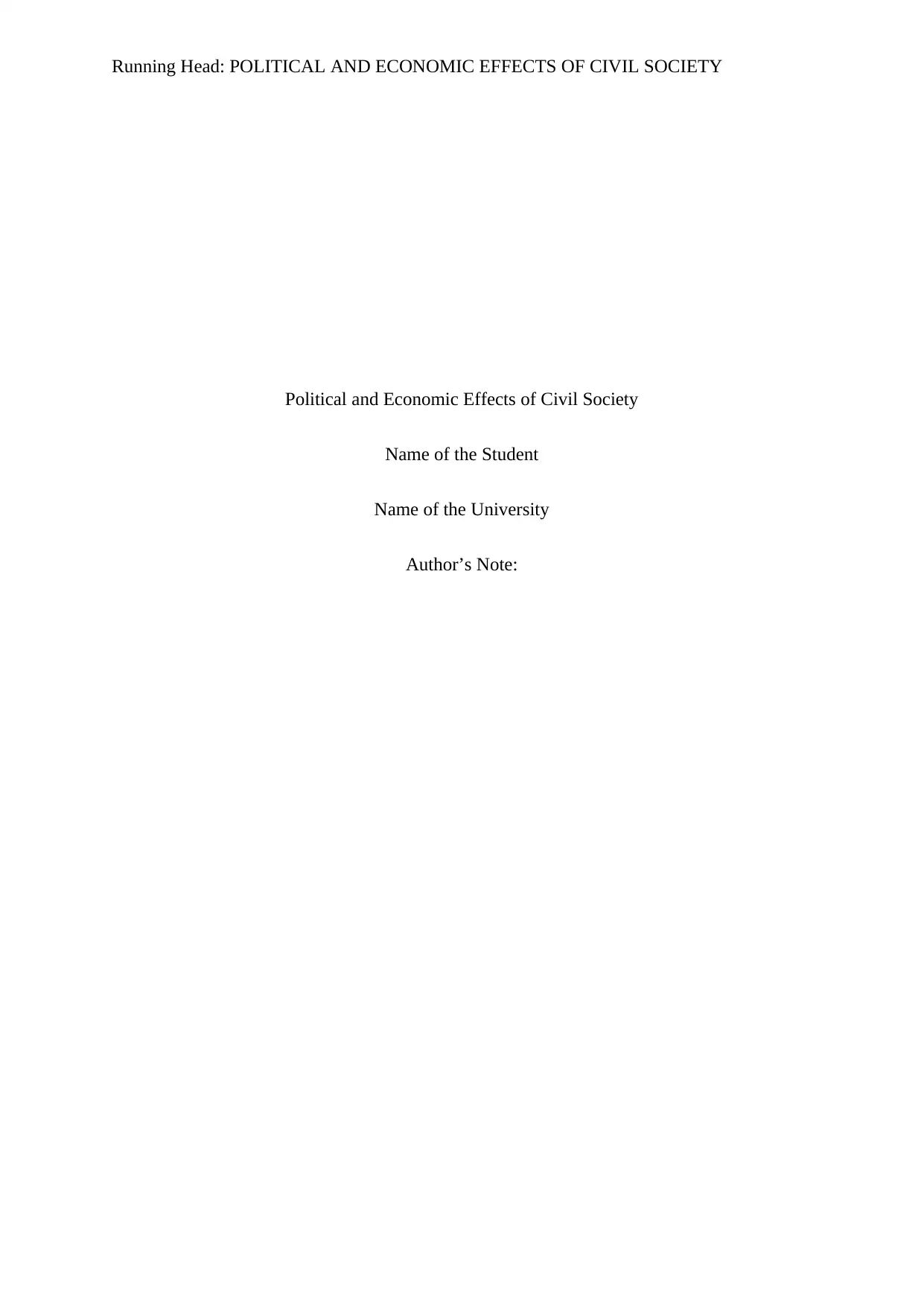
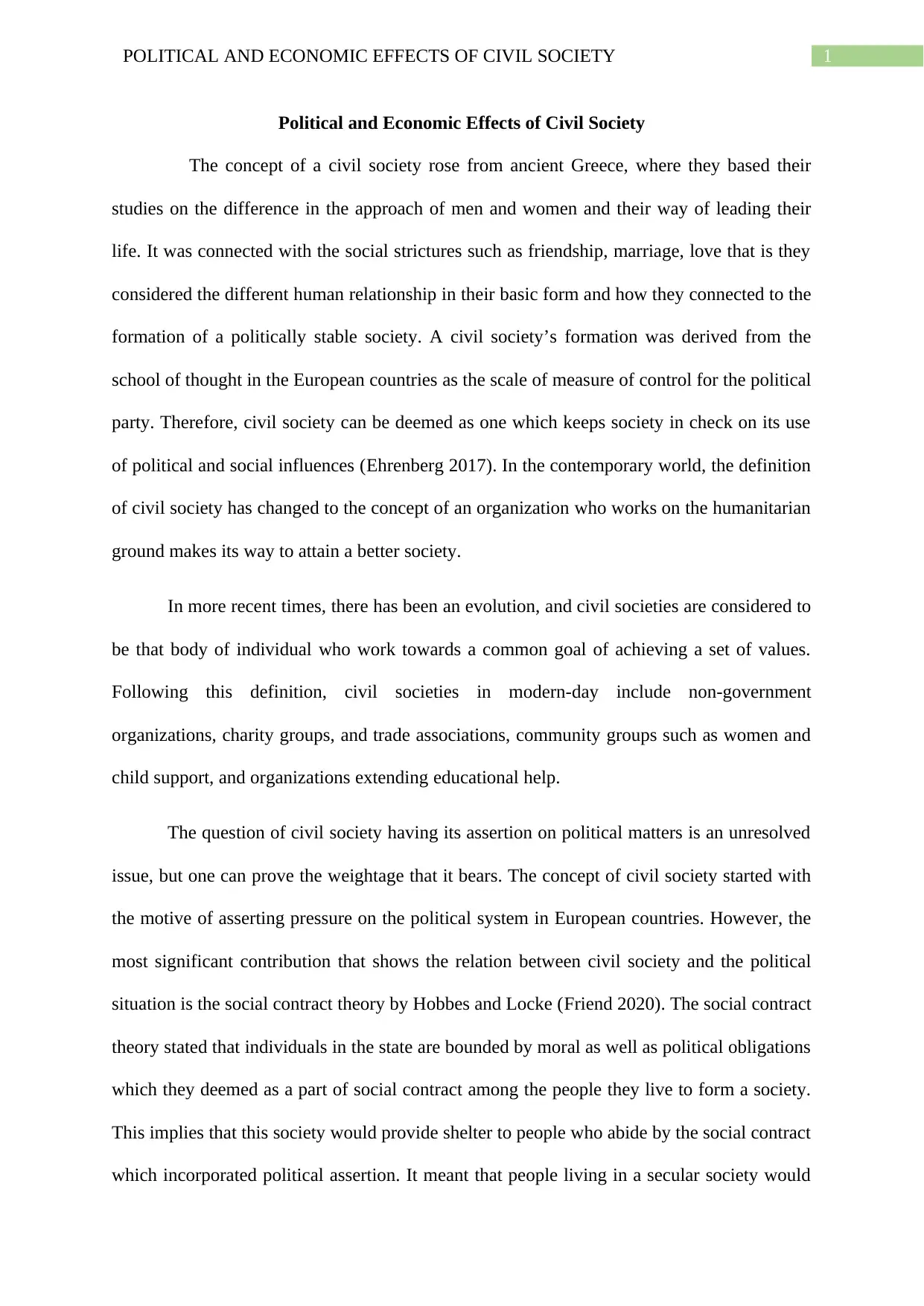
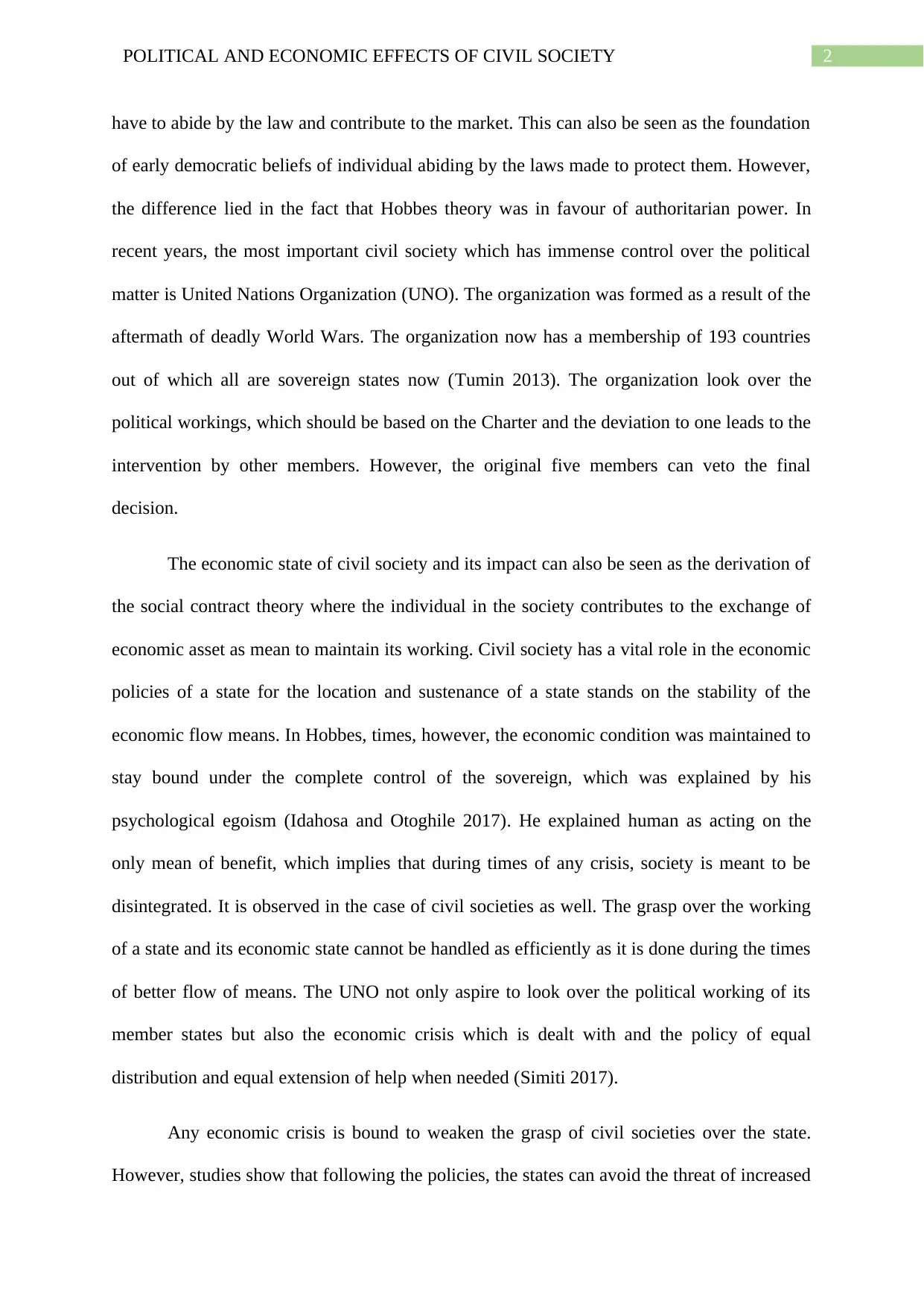

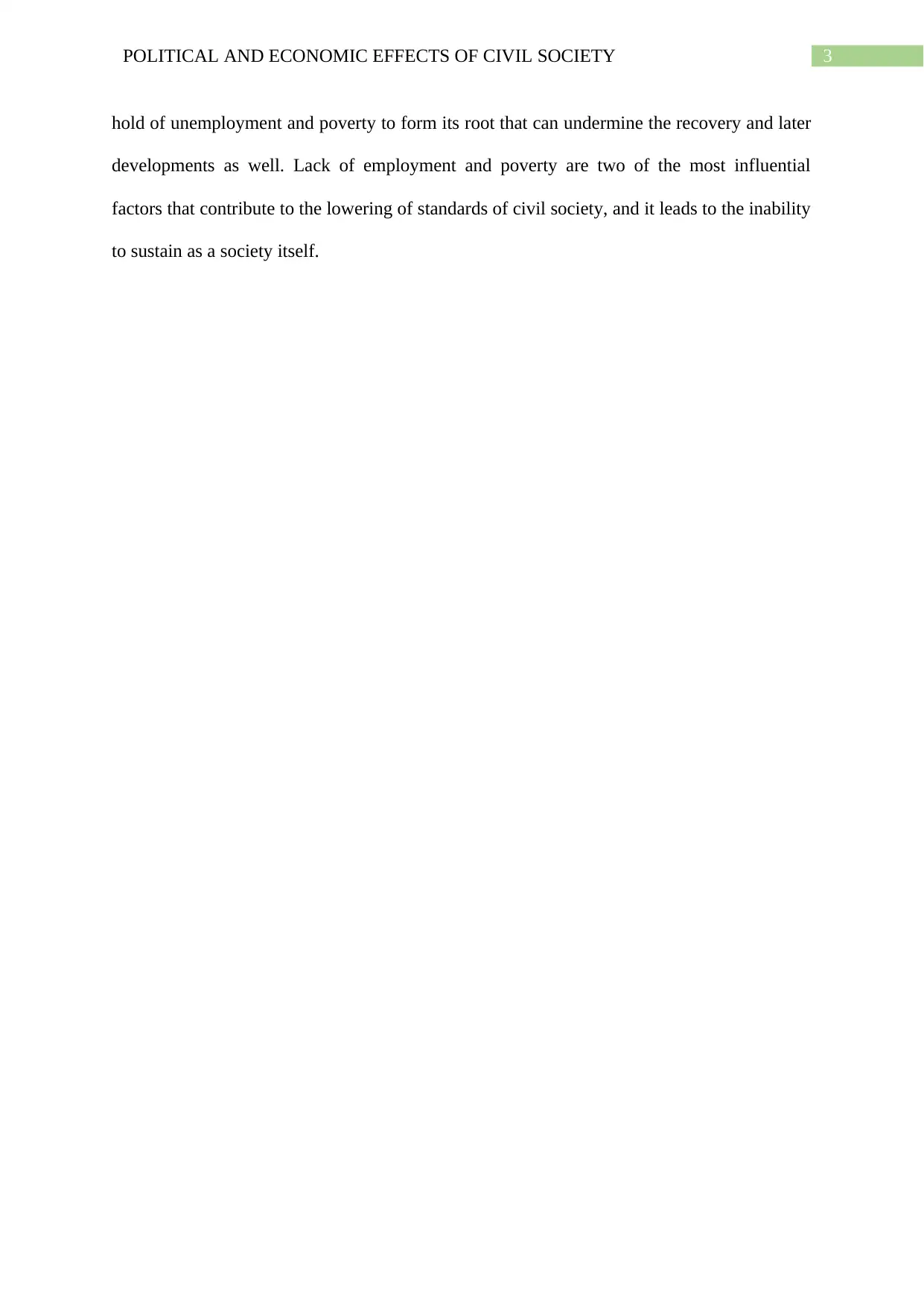
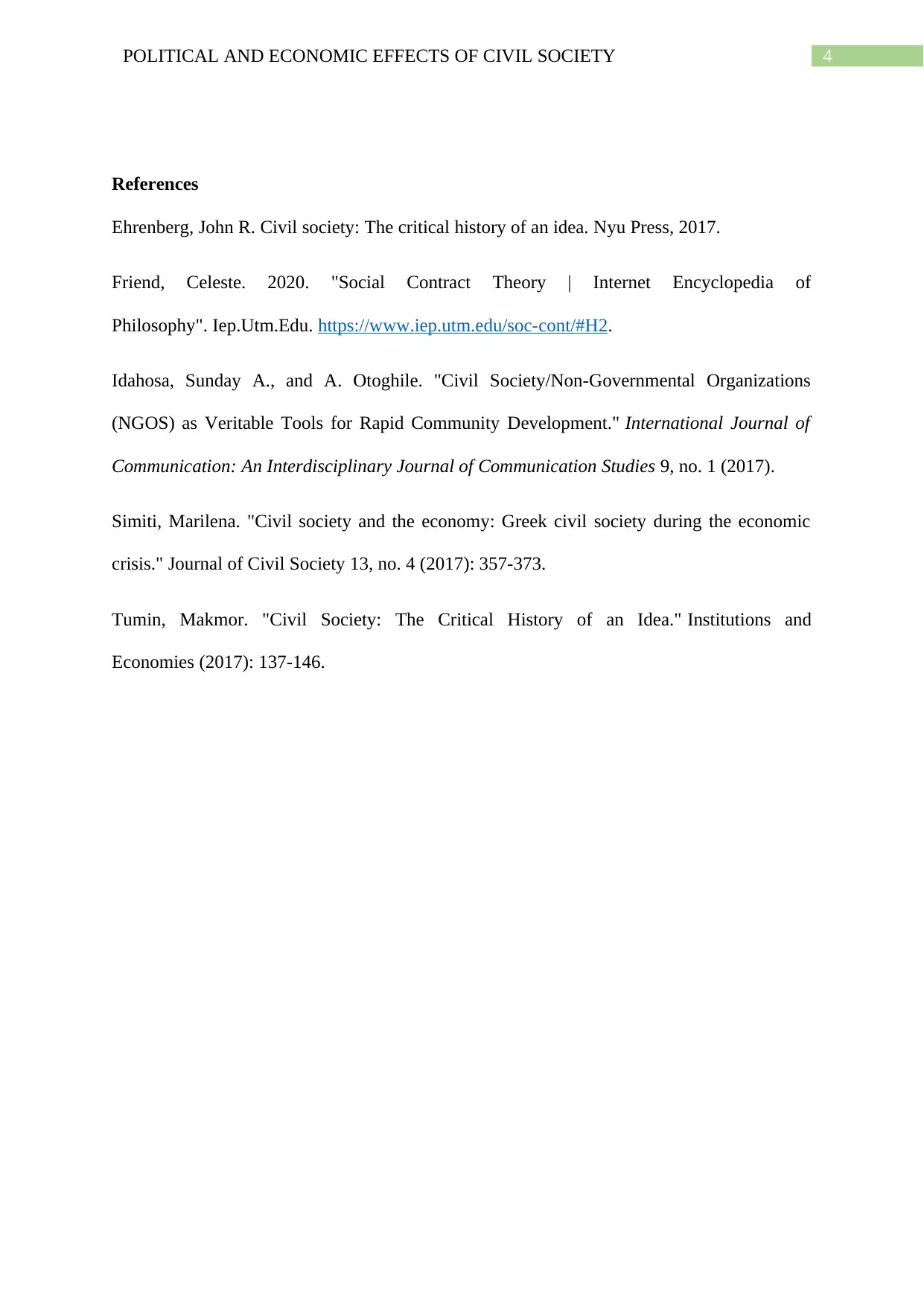





![[object Object]](/_next/static/media/star-bottom.7253800d.svg)